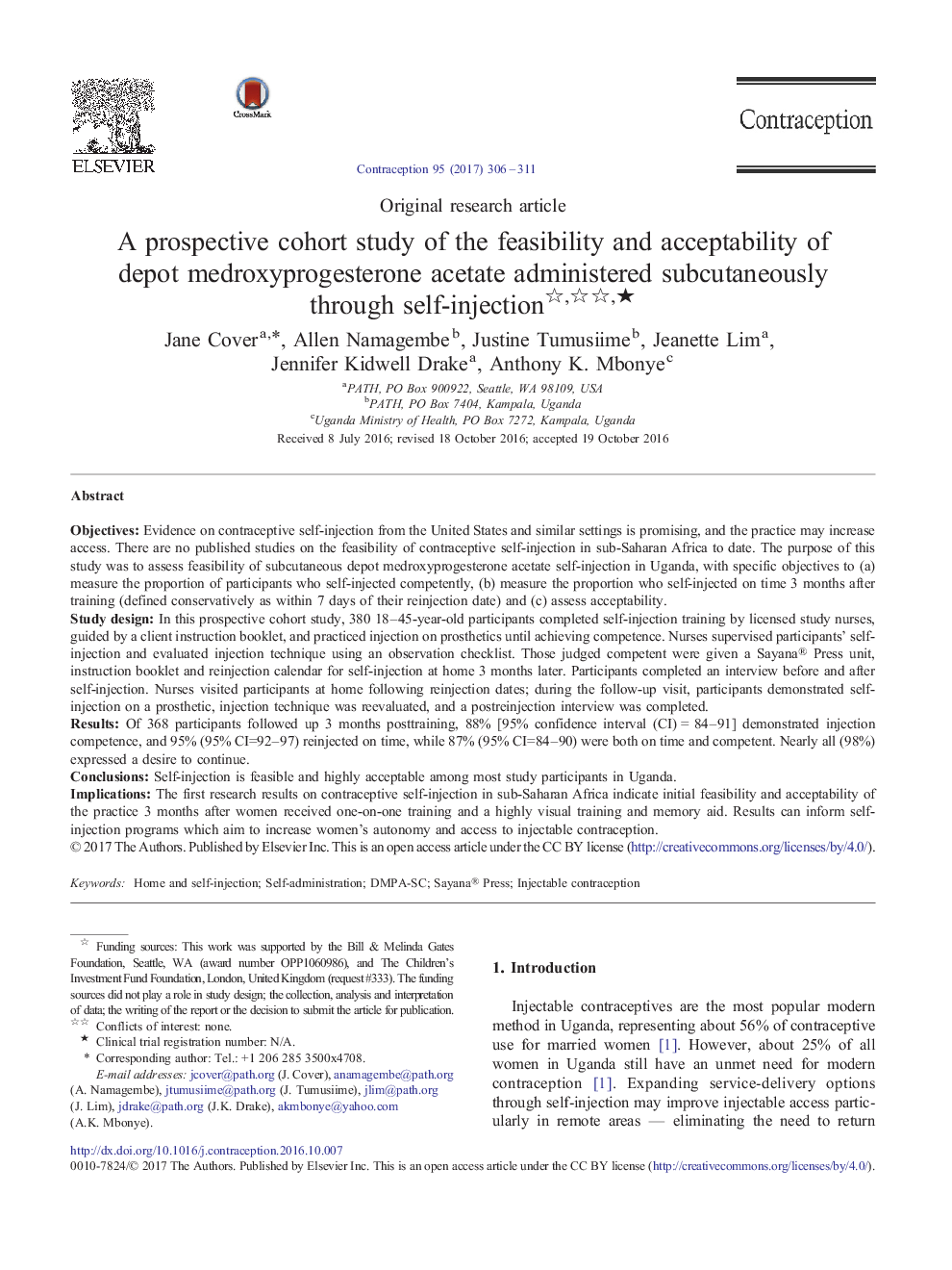| کد مقاله | کد نشریه | سال انتشار | مقاله انگلیسی | نسخه تمام متن |
|---|---|---|---|---|
| 5694304 | 1410192 | 2017 | 6 صفحه PDF | دانلود رایگان |
ObjectivesEvidence on contraceptive self-injection from the United States and similar settings is promising, and the practice may increase access. There are no published studies on the feasibility of contraceptive self-injection in sub-Saharan Africa to date. The purpose of this study was to assess feasibility of subcutaneous depot medroxyprogesterone acetate self-injection in Uganda, with specific objectives to (a) measure the proportion of participants who self-injected competently, (b) measure the proportion who self-injected on time 3 months after training (defined conservatively as within 7 days of their reinjection date) and (c) assess acceptability.Study designIn this prospective cohort study, 380 18-45-year-old participants completed self-injection training by licensed study nurses, guided by a client instruction booklet, and practiced injection on prosthetics until achieving competence. Nurses supervised participants' self-injection and evaluated injection technique using an observation checklist. Those judged competent were given a Sayana® Press unit, instruction booklet and reinjection calendar for self-injection at home 3 months later. Participants completed an interview before and after self-injection. Nurses visited participants at home following reinjection dates; during the follow-up visit, participants demonstrated self-injection on a prosthetic, injection technique was reevaluated, and a postreinjection interview was completed.ResultsOf 368 participants followed up 3 months posttraining, 88% [95% confidence interval (CI)Â =Â 84-91] demonstrated injection competence, and 95% (95% CI=92-97) reinjected on time, while 87% (95% CI=84-90) were both on time and competent. Nearly all (98%) expressed a desire to continue.ConclusionsSelf-injection is feasible and highly acceptable among most study participants in Uganda.ImplicationsThe first research results on contraceptive self-injection in sub-Saharan Africa indicate initial feasibility and acceptability of the practice 3 months after women received one-on-one training and a highly visual training and memory aid. Results can inform self-injection programs which aim to increase women's autonomy and access to injectable contraception.
Journal: Contraception - Volume 95, Issue 3, March 2017, Pages 306-311
